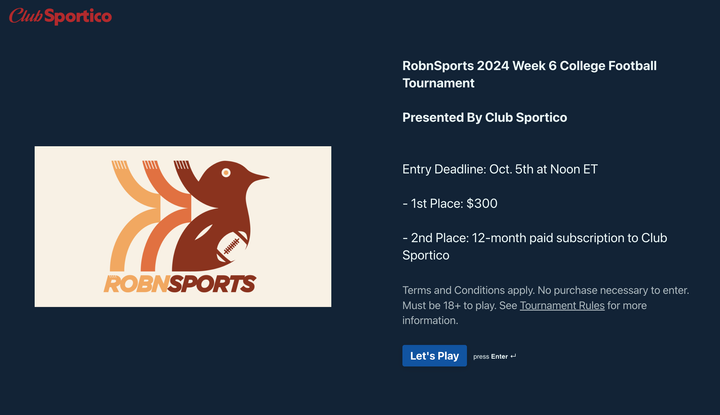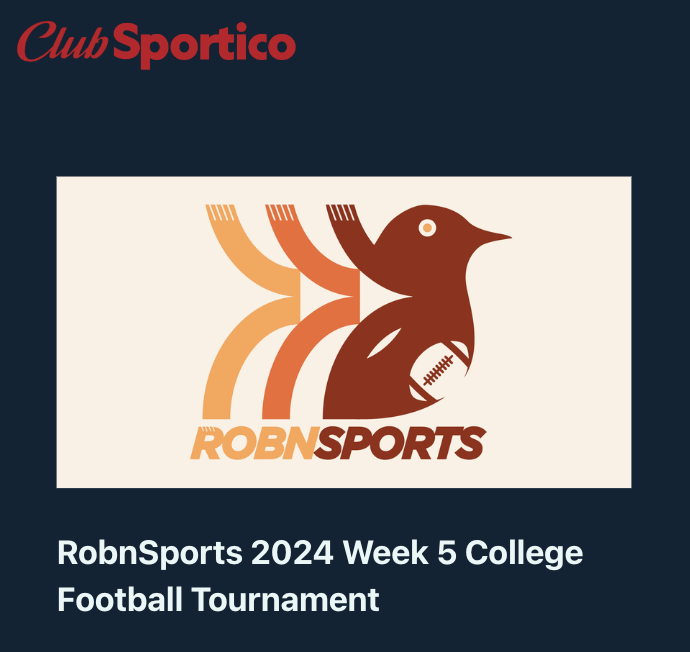CFB '23 - Week 11 Preview
We keep tabs on the college kids on the phones, while Tony Pettiti contemplates putting his head in a vice
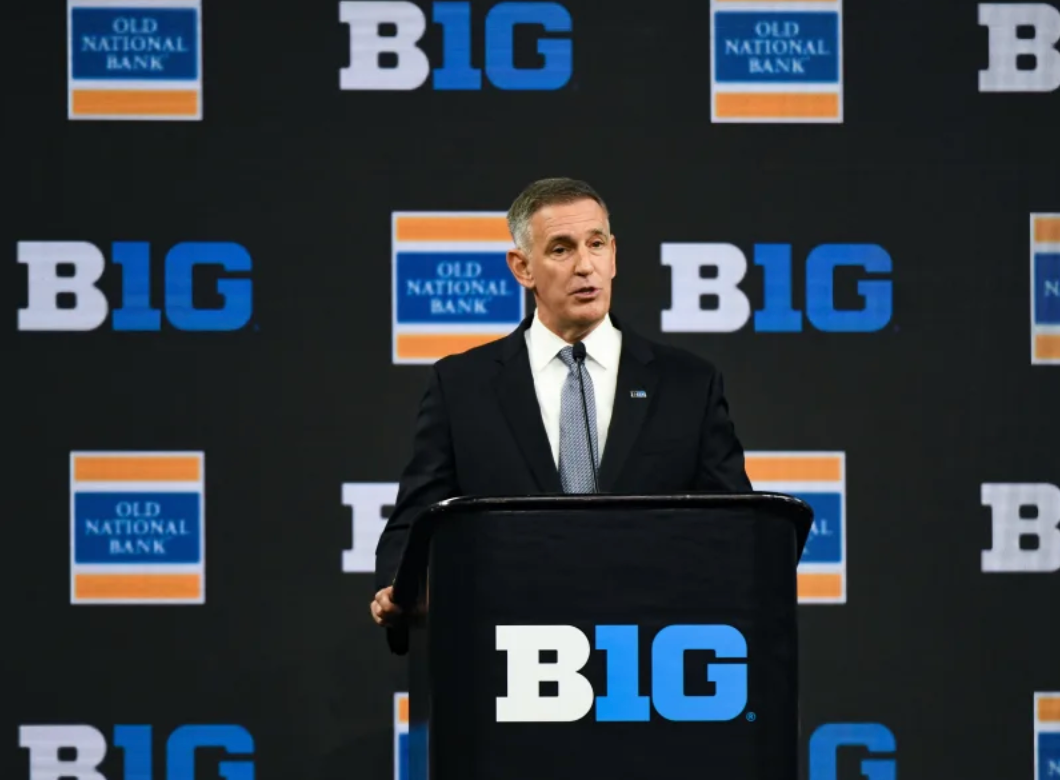
The Fuzzy Morality Of Taking What You're Presented With - Part 2
Preventing People From Acting On Information That's Shoved In Their Face
- Michigan-Penn State, Ole Miss-Georgia, Washington-Utah, Oregon-USC highlight blockbuster weekend
- ADs peer-pressure Petitti into disciplining Michigan, report immediately surfaces that other Big Ten team stole Michigan’s signs
- Recently saw a picture of record producer Scott Storch and he looks like a potato, so I call him Scott Starch
What Happened To The College Kids On The Phones?
For the second time during this Onions 2023 CFB contest, I come to you at the moment of weekly preview email dissemination, late night and scratchy eyed, live from the Minneapolis airport. No inflation-related hijinks at the Delta Lounge this time around. Just the hum of industrial floor-cleaners and a longing to return to HQ.
Last Wednesday we started picking shards of memory out of the back catalog of our professional experience. We were prompted by the exploits of college football’s Man of the Year and recipient of the first-ever Onions nickname for a non-participant: Connor “Ride Those” Stalions.
The now over-documented sign-stealing scandal that he is alleged to have masterminded, or at least carried out, reminded us of another scenario in which young people sit in the stands at college football games and record what they see teams and players doing: the early days (maybe even the current days) of capturing the play-by-play data that fuels live sports betting markets.
In our totally made up story, our yarn definitely not based on real-life anecdotes from those engaged in the practice and shared over the years throughout the sports betting industry, around a decade ago Dataco X was sending 18-24 year olds for to games with iPhones and paying them $10 an hour. Said kids — often students of the school to which the game pertained — used the devices to track statistical and play-by-play data covertly. This oftentimes included exploits as detailed as appearing to be on a long call, with hold music playing in the background, and dialing numbers into the dialpad to indicate the plays unfolding in front of them - a “1” for pass, a “2” for rush, etc.
That data was then fed into an algorithm operated by Dataco X and spat out as odds and prices that Dataco X sent instantaneously to its customers: online sportsbooks. The sportsbooks then took those prices and used them, also instantaneously, to offer in-game betting markets to their customers, O.G. gambling degenerates off somewhere in Canada or Costa Rica or Kazakstan, on the games in question as they were being played.
(This still happens today, it’s just "above board." Dataco X is long since an acquisition of a billion-dollar business, its sportsbook customers are also now betting operators in the U.S., and the kids sit in the press box with a complimentary water and peanut snack rather than in the cold, wet stands).
Where we left off was 2013, with these college kids attempting to click-clack with their little frozen fingers, filled with the sardonic excitement of doing something debasing that they think will ultimately pay off for their careers in the long-run.
So, what occurred when they did this?
Usually, nothing.
Very few people 10 years ago were going around patrolling the stands of live events for this data-recording activity, referred to in the betting industry as “courtsiding.” So, usually Dataco X would get mostly reliable data and make money. Sportsbooks would offer (by todays standards, highly exploitable) live betting markets and they too would make money. The gears of grey area marketplaces are just as quiet when they’re well-lubricated…
But sometimes, maybe when a little too overt of a click-clack was recorded, maybe following a tip by concerned Boomers sat six rows behind in sweatshirts bearing the home team’s name and those light-blue Land’s End jeans you could swim inside of, the kids were caught and escorted out of the stadium.
For the avoidance of doubt, I am equating someone tracking publicly available data and feeding it to a company with someone tracking publicly available data and using it to unfairly beat another team in a game.
First, both efforts utilized young people, including students of the school to which the event pertained.
According to the Washington Post, the unnamed investigatory firm that apropos of nothing discernible brought all of this to the NCAA’s attention last month, “presented its evidence to top NCAA officials including photographs of people investigators believed to be Michigan scouts in action — including current students interning with the football team.”
This reveals two truths: Cheap labor is cheap labor, and there is an endless array of ways to take advantage of young people, “just looking to get into the industry.”
Second, both actions constituted a violation of rules. Sure, they are the rules of the NCAA and/or the school that sells the ticket that Stalions/Dataco X bought so that the kid could attend the game. They are not as far as I know rules that are valid in, like, a real court of law pursuant to statute. But they are rules in the sense of, like, Walmart won’t serve you if you don’t wear a shirt or shoes in their store.
(Aside: Google has incidentally revealed to us the existence of a passionate advocacy group called the Society for Barefoot Living, and we now no longer feel socially deficient for having our chief hobby be this made-up vegetable contest).
Per NCAA bylaw 11.6.1, the NCAA actually doesn’t prohibit sign stealing. It has prohibitions against in-person scouting off campus of future opponents and it prohibits recording play signals given by opposing players.
Per ESPN: “The NCAA received stadium surveillance video this week that a person sitting in the seat purchased by Stalions was using electronics to film a game, which is not allowed under NCAA rules.”
So, yeah, if Stalions did what is being alleged, he broke the rules. There is something to catch him at.
But there is also, now at least, provisions by which to “catch” the kids in the stands tracking play-by-play data.
Putting Some (Infra)Structure Around It
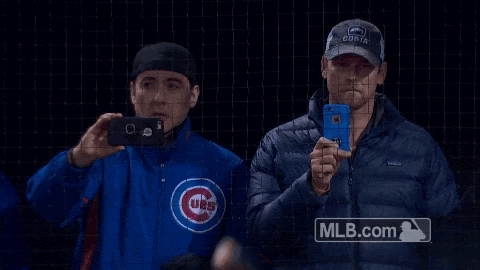
Over in the United Kingdom, betting is second-nature. They’re about 40 years ahead of the U.S., to the extent that whole infrastructures are long-since formed around the safeguarding of betting integrity, betting regulation, betting data rights and dissemination. To create these things, on its face, is natural and necessary whether you support or oppose betting.
In the U.S. such formation is either the subject of interminable governmental “working group” scrutiny, or the urgent priority of rapacious for-profit groups that see unclaimed ideological land to colonize.
Football Dataco is not the company from the example earlier in this piece. But it is one such third-party company that exists as a cog in the aforementioned infrastructure. Its sole purpose is to “protect, market and commercialize the rights to official match related data” of the United Kingdom’s top soccer leagues, including data for journalistic media as well as sports betting companies.
Football Dataco (FDC) is basically a middleman. It has the exclusive right to sub-license the rights to a third party to collect and disseminate data from all of the UK’s top football matches. In this case Genius Sports, a major data company, is the exclusive holder of these rights. Genius also has, among many other relationships, the NFL’s official data rights.
It’s a bit like the scene in Ocean’s Thirteen when Matt Damon tries to pass off his casino-robbing co-conspirator, the tiny Asian man Yen, as a wealthy real estate mogul: “He owns all the air south of Beijing. Try doing something taller than three stories in the Tianjin province, and see if his name comes up.”
OK. But is he going to stop me from breathing the air? From looking at it? From throwing objects up into it?
It begs perhaps a more practical question: What happens when the thing you have “exclusivity” over is a derivative of a product that’s not just in front of millions of people, but that the creators and promoters of that product are begging you to pay attention to?
During the time that Genius had its arrangement with FDC, a rival data company to Genius put that exact question to the formal test. The data company Sportradar (who for reference has the NBA, NHL and MLB’s main data deals) sent scouts to collect play-by-play and statistical data at UK soccer matches.
The lawsuits sprang forth shortly therewith.
FDC claims that it identified and ejected around 300 Sportradar data scouts sitting in the stands and “surreptitiously” collecting data at nearly as many matches (anecdotal recountings of the practice indicate that for every scout that was caught, two were not caught). FDC also claimed Sportradar gathered betting data from non-delayed TV feeds, which it wasn’t supposed to be able to have access to. Genius was quick to remind everyone that, hello, we paid not for access but for exclusivity here.
It claimed the fact that it paid a handsome sum to the FDC to have the exclusive right to distribute this data transformed the data into “trade secrets.”
Sportradar, meanwhile, argued that the exclusive agreement between FDC and Genius was unlawful and void as it infringed on competition laws, and also that the FDC abused its dominant position in the marketplace.
It also argued that “prohibiting scouts from recording live data which is readily apparent to any spectator, those provisions are unenforceable.”
Hmm.
The two companies settled out of court last year.
The FDC and Genius agreed to let Sportradar to purchase official sublicensing rights from Football Dataco. These sublicensing rights gave Sportradar access to a secondary, slightly delayed (i.e. far less lucrative) data feed that it could disseminate to its sportsbook customers, in exchange for Sportradar agreeing to stop sending people to courtside the FDC’s soccer matches.
A Special Device In The Shorts
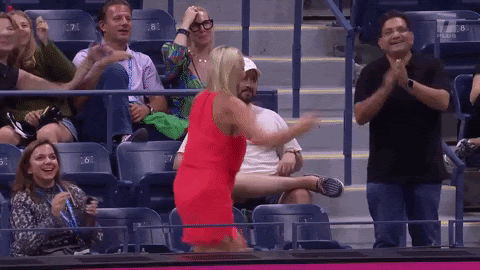
Back in the U.S. around this time, leagues took notice of the case and started wondering if there were people courtsiding at their events.
Sometimes this (the wondering, not the courtsiding itself) happened even before states outside of Nevada were allowed to start authorizing sports betting. It certainly occurred prior to the leagues having official deals for sports betting data dissemination — though not prior to the creation of statistical/media deals.
At the U.S. Open tennis tournament in 2016 for example, a man named Rainer Piirimets (Rainnniiieeerr? Did you get the Piirimets to build the new house yet?? I imagine his wife yelling to him) was one of 20 courtsiders caught by authorities at the event and expelled. Reports of his capture led to the now-infamous assertion that courtsiders at tennis matches can cloak their data dissemination through the use of “a special device in their shorts.”
He was served with a 20-year ban from setting foot at Flushing Meadows.
He was caught by a UK-based group called the Tennis Integrity Unit (see: infrastructure) that constantly scanned the stands through the use of closed-circuit cameras to observe fan behavior (more like the Chinese Government Open, amirite!!).
The TIU had jurisdiction for integrity-related enforcement over the events sanctioned by many of the global tennis bodies including the ATP Tour and the four Grand Slam tournaments. This would be like if the NBA was sanctioned by FIBA, and FIBA awarded its anti-corruption watchdog efforts to something called the Basketball Integrity Unit, and the BIU flew over from London to patrol every NBA game.
Somewhere toward the bottom of each news article that reported Piirimets’ transgression, it was noted that courtsiding is not illegal.
But Piirimets returned in 2017 to the U.S. Open to once more capture data, violating his trespassing ban. He was again found out by the TIU.
It’s likely, though not confirmed, that he was acting not for a rogue data company trying to get fast play-by-play data for free (i.e. the Sportradar to the Football Dataco’s Genius), but that instead he was acting for a professional sports betting syndicate who wanted the data faster than any data company, official or unofficial, was collecting and distributing it.
Why? If the syndicate got the data before the betting company, it got the data way before the sportsbook that would use the data, meaning it knew what was going to happen before the sportsbook knew what was going to happen. That’s a good recipe for being profitable bettor.
Once states were allowed to affirmatively legalize sports betting in 2018, major U.S. leagues started doing their own versions of the Football Dataco deal — but instead of a third-party company set up to sell the official betting data rights to Sportradar or Genius, the U.S. leagues sold the official betting data rights to Sportradar or Genius directly.
Several states, in response to league lobbying efforts, attempted to criminalize courtsiding as part of their new laws that enacted sports betting. The efforts met with little success.
Meanwhile, there is federal precedent that scoring and statistical data does not fall under the leagues’ copyright protection claims.
Without that pesky statutory mechanism by which to punish people with the full force and effort of the law, leagues since reverted to putting language on the back of the tickets that prohibits the dissemination of data related to the game in question. This language, the leagues argue, represents the terms of a contract that you agree to when you buy the ticket.
Fast forward to now. Courtsiding still occurs in America. And if there’s ever a place for it in the U.S. landscape, it’s at the collegiate level, where decentralized and enervated bureaucracy reigns supreme, rights maps are overlapping and contradicting, and some conferences are expanding while others are crumbling before our very eyes.
If the allegations against Connor Stalions are true, he courtsided. Just in a different way.
There is cogency in the argument that it’s “different” when a company or an individual does it to make money from sports betting, as opposed to when a team does it to try to gain unfair advantage vs. an opponent. If a person or company does it, it’s just two parties’ private business deal at stake. Ho hum. But if a team does it, the integrity of the game you’re watching might be compromised. This is disquieting to even the most cynical college football fans.
But lost in all of the Stalions-is-evil, Stalions-is-innocent talk is an examination of whether it’s fair to try to police the use of public information in the first place.
In Part Three of our series, we will tackle this, as well as the latest Michigan developments, the futility of on-demand moral outrage at one institution.
Moving Week
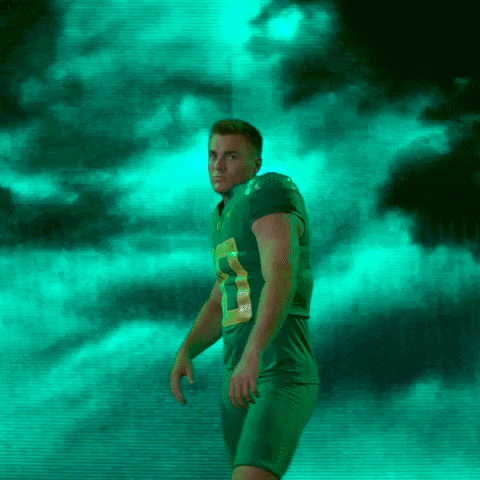
Here is the list of teams that can make the college football playoff, and their odds to win the CFP outright, from DraftKings:
Michigan +220
Georgia +260
Ohio State +700
Florida State +600
Washington +1200
Oregon +1000
Texas +1500
Alabama +800
Penn State +10000 - the math on this is fascinating
Ole Miss +20000 - would need two Bama losses?
Louisville +30000 - would need complete carnage above
Four of these teams play each other (Ole Miss-Georgia and Michigan-Penn State), while Oregon and Washington have major tests at home, and Alabama and Texas have sneaky spot tests on the road.
9 of the 11 teams are on this week’s card, plus an underrated Friday night tilt in the Mountain West.
Why do you need a preview from me? Just sit back and enjoy those sweet, sweet ramifications.


